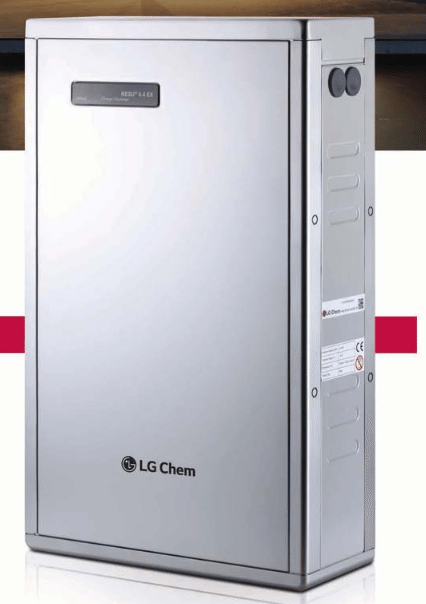
South Korean lithium-ion battery maker LG Chem has announced plans to expand its presence in the Australian residential solar and battery storage market, following “exponential” growth over the past six months, and chasing even greater growth in what it says could be a “critical decade” for the technology.
LG Chem launched its lithium-ion 6.4kWh Residential Energy Storage Unit (RESU6.4EX) on the Australian market last July, and has since supplied 600 units via its two main local distributors – Solar Juice and Supply Partners. 
The company says it expects to see a five-fold increase on this number in 2016, supplying more than 3000 units for the year, and an even greater rate of growth in 2017, when the country’s remaining high solar FiTs are ratcheted down.
This, combined with the urgency of replying renewables to tackle climate change and encouraging noises of support for from federal and state governments, all point to busy times ahead for battery storage manufacturers, LG says.
“This could be a critical decade for Australia,” said the company’s manager of Australian business development, Changhwan Choi, in a statement on Thursday.
“We see a quiet solar revolution brewing and we strongly believe that LG Chem will be at the forefront of this transformation to help unlock the true value of solar storage and better enable the ecosystem.
“We welcome competition too. We are positive that when more people adopt the RESU6.4EX in Australia, the market will appreciate the quality, efficiency and cost competitiveness of our offering”.
In a telephone interview from Singapore, LG’s Changhwan told One Step that a key difference between his company and a competitor like Tesla was scale. Well established as one of the leading global manufacturers of lithium-ion batteries for electric vehicles, LG Chem has a good head start on mass-market production.
“We have the biggest manufacturing facility in the world,” he said, which meant that, based on the volume, the batteries could be very competitive on price.
So far, their biggest market for residential batteries has been in Germany, a “very stabilised” market which they started supplying back in 2012.
As well as Australia, Chanhwan says LG Chem is also focusing on the UK market, where the major solar FiT finished last year, and on Italy, which he says is experiencing similar conditions to Australia, with a high penetration of rooftop solar and high electricity costs.
In Australia, Changhwan says LG Chem is also very keen to tap the utility-scale and commercial-sized battery market. The company already has many examples of this installed in the US and Europe, using its 10MWh and 30MWh container batteries.
“We are ready to supply (large-scale battery storage) as soon as the utility companies are ready,” he told OneStep, adding that it was his guess that time would arrive at the end of this year.
On the residential battery front, LG is still hoping for some policy support to fuel uptake, and suggests a key support measures will be to design new “tariffs that can allow consumers to realise the economic benefits of an investment in the technology”, such as pricing structures based on time-of-use.
“With the FiTs finished, there are many, many houses with solar panels that can use battery storage to help reduce their electricity bill,” Changwan told One Step. “They can use the energy from the battery when the electricity cost is high.”
According to the available specs on LG Chem’s RESU6.4EX battery, it is a compact lightweight unit (60kg) and claims to have the highest energy density in the world; that is, the smallest in volume compared to the amount of energy it can deliver.
It is principally designed to be used in conjunction with an inverter to maximise solar self-consumption, but can also be used in an off-grid situation.
The battery systems can be upsized, with the addition of 3.2kWh expansion packs, taking total capacity to 9.6kWh or 12.8kWh energy storage, depending on the household’s needs.
The battery can be cycled (discharged and re-charged) 6000 times to 90 per cent depth of discharge (DoD) and according to one sources, in terms of $/kWh, is believed to be one of the cheapest batteries on the current market. (Prices for the battery appear to be around the $8,000 mark, + GST.)

Sophie is editor of One Step Off The Grid and editor of its sister site, Renew Economy. Sophie has been writing about clean energy for more than a decade.

